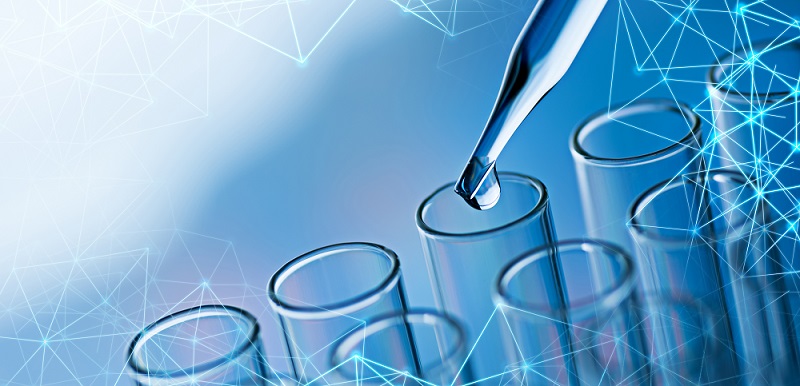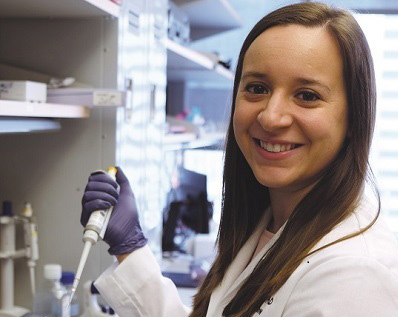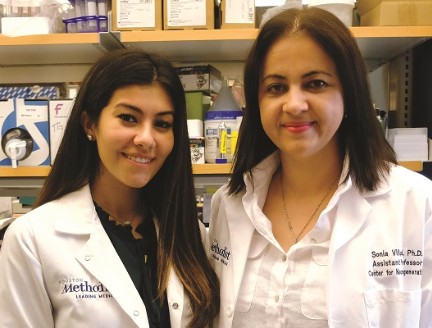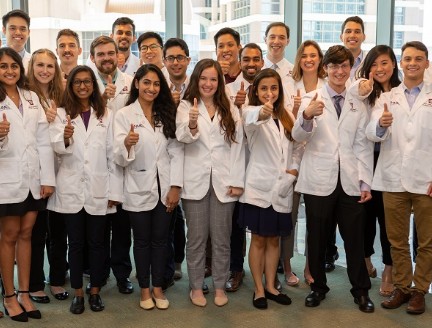


Innovative Education
NeuralCODR Crosses Gaps
Fellows study nervous system's connection to organs

NeuralCODR aims to address gaps in mapping and studying how the central nervous systemcommunicates with organ systems throughout the body.
A new Houston Methodist postdoctoral fellowship training program, Neural Control of Organ Degeneration and Regeneration (NeuralCODR), is designed to address gaps in mapping and studying how the central nervous system communicates with organ systems throughout the body.
NeuralCODR was conceived by Philip Horner, PhD, and a team of faculty that understands the value of collaboration across disciplines. They come from institutions across the Texas Medical Center, including Baylor College of Medicine, Rice University, The University of Texas Health Science Center at Houston (UTHealth) and MD Anderson Cancer Center. Two postdoctoral fellows have already begun learning firsthand about the distinctive opportunity to collaborate with clinicians and help provide clinical solutions based on their research experience. The year-long program includes a course of the participant’s choosing based on their research interests, a clinical rotation, a case report and other components.

Caroline Cvetkovic, PhD, a postdoctoral fellow in the Krencik Lab, studies the relationship between astrocytes and neurons in the brain.
Caroline Cvetkovic, PhD, is working in the Krencik Lab to study the relationship between astrocytes and neurons in the brain. She is developing human stem-cell derived 3D neural tissue cultures, used to study various aspects of development and degeneration, to gain insight into potential regenerative clinical therapies. Secondarily, she has developed an early model system of bowel organoids with innervation by human-derived neurons.
“As part of the NeuralCODR program, we have access to unique resources, like grand rounds and direct interaction with and advisement from neurosurgeons,” said Cvetkovic. The NeuralCODR training allows her to collaborate directly with clinicians, researchers and patients to learn about actual patient needs and the clinical limitations when addressing them. Cvetkovic’s clinical mentor is Gavin W. Britz, MD, MPH, MBA, FAANS.
NeuralCODR is a novel program that brings together expert NIH-funded faculty across multiple institutions with a rich history of research training, clinical modeling and education to address the lack of collaboration and training among system or organ based laboratories and those focused on neural activity.

Philip Horner, PhD
Scientific Director, Center for Neuroregeneration
Professor of Neuroregeneration
Houston Methodist
Matthew Hogan, PhD, is working in the Horner Lab, studying the influence of neural activity on regeneration after spinal cord injury, stroke or other disease. He is developing an epidural stimulator and testing different frequencies of stimulation on the spinal cord to determine whether it can drive neural stem cell grafts to connect with local host circuitry. Hogan’s goals are to apply his engineering training in the vascular system to that of neural stimulation paradigms for neural plasticity. For Hogan, his decision to train at Houston Methodist centered on the research acumen of Horner, access to clinicians and the resources and access to intellectual capital available within the TMC.
Matthew Hogan, PhD, a postdoctoral fellow in the Horner Lab, studies how neural activity influences regeneration after spinal cord injury.
Like Cvetkovic, Hogan wanted to make an impact on patient lives. “I think we both came into the realization that we were doing something really neat–I was engineering heart tissue–but I questioned where I was going with it,” said Hogan. “I couldn’t really see any translational potential, so I decided I wanted to make a change and do something that I may eventually see in my lifetime become a therapy.” Hogan’s clinical mentor is Brian D. Dalm, MD, assistant professor of neurosurgery.
In addition to Cvetkovic and Hogan, the Center for Neuroregeneration is recruiting for two additional NeuralCODR postdoctoral fellows through the Paula and Joseph C. "Rusty" Walter III Neurorestoration Program Endowment. Visit neuralcodr.org for more on the program.
Laura Niles, October 2019








